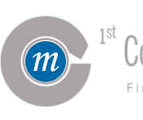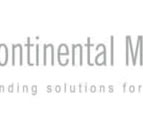 |
 |
 |
 |
mortgage loan programs available in: Alabama, Alaska, California, Colorado, Florida, Montana, Indiana, Louisiana, Maryland, Minnesota, Mississippi, Missouri, New Mexico, North Carolina, North Dakota, Pennsylvania, South Carolina, South Dakota, Tennessee and Texas |
||
 |
FHA home loans: | FHA home buyer | streamline refinance | mobile home loans | reverse mortgage |  |
 |
 |
 |
 |
 |
 |
|
 |
mortgage loans: | home purchase | Mortgage Refinance | home equity loans | jumbo mortgage |  |
 |
 |
 |
 |
 |
 |
 |
| FHA loans » | ||||||
Down Payment Assistance
Our team of mortgage originators knows how to work with a wide range of Down Payment Assistance programs nationwide to help our qualified borrowers in purchasing their new home. Some down payment programs have income restrictions and/or purchase price restrictions. No matter what the case is, our origination team can help you work through the qualifying process. If you meet the income requirements for your area, and if funds are available through the down payment program, then chances are, we can locate a HUD Approved assistance resource for you! Many of our originators are well-versed at looking for opportunities to assist our first time home buyers with identifying and utilizing any available local or state program, as well as not for profit operations too. Even if you have your down payment, you can utilize eligible funds to "pay down" your FHA loan mortgage balance. In many instances, these "grants" are forgiven over time. In essence, it's free money. FHA PolicyHUD does not have a particular policy regarding down payment programs in terms of applying for approval with the program. However, HUD does indeed maintain a list of HUD Approved down payment assistance programs. When it comes to down payment programs, the primary focus for HUD is ensuring that no secondary financing (2nd mortgage, excluding HUD approved secondary financing) is closed in conjunction with an FHA insured mortgage loan. HUD's general policy, as of this writing, is a program that adheres to HUD's secondary financing guidelines, may act as a gift agent for purchase of a home.
Down Payment Savings Tip!Not everyone is eligible for a downpayment assistance grant. For those looking for an effective and very safe way of saving up for a downpayment, here's the best tip we know in the market. If you like this tip, be sure to print it out, share it, and maybe even link to our website! We can tell you from experience, this really works! Using our mortgage payment calculator and our debt ratio calculator, identify how much home you can afford based upon your income and your debt ratios. The FHA loan program has the lowest current downpayment requirement of 3.5%. Multiply your purchase price by 3.5% (price x .035) to identify your downpayment needs. While you theoretically might get seller paid closing costs of up to 6%, you just as well may not, as every seller and market is different. So, to have options when home shopping, multiply your purchase price by 6% (price x .06). You now have the two major cash items you need to factor when buying a home. Your downpayment and your closing costs. What you should have is something like this: I can afford a purchase price of $150,000, based upon my estimated PITI payment factoring my current debt ratios. 3.5% of 150,000 is $5250. 6% of $150,000 is $9000. So, to be sure that I have sufficient cash on hand to buy a home, I need to save up a total of $14,250 if using an FHA program. To accomplish this, you may have to break this down into what we call "bite size" chunks. How this works. You go to your local bank. You will want to take out a certificate of deposit in the amount of $1,500. You secure a loan with that certificate of deposit for $1,500. The loan payment terms are over 12 months (use our loan payment calculator to factor what you can afford in a monthly payment). The catch is, with some banks you have to have the cash on hand already. This is OK. What happens is, the bank will take the money out of your account, create a CD for the amount, then do a installment loan secured by the new CD -- when it's all said and done, they'll issue you a bank check for the amount taken out of your account. Some banks do charge a fee, so you'll want to shop around. Your objective is to payoff this loan as quickly as possible, paying extra towards the installment loan as "uncommitted" funds become available. Once you've paid it off, you can roll it over and take out a new loan for what you can afford in monthly payment. Let's use the $1500 amount again as part of this example. You take out another CD for $1500, secured by another installment loan, and repeat the process. Don't have $1500 at any one time? Start with $500 or $1000. If you don't own a home and you're paying rent, then before you pay your landlord, go down to the bank and take out a CD loan for the amount of your monthly rent. How this process of saving for a downpayment helps you:
The reality is, the FHA loan program is the best option today for taking out a low interest fixed rate mortgage in today's market. It's safe, backed by the federal government, is far more flexible in underwriting, and only requires a 3.5% downpayment. With a conventional mortgage, your credit really needs to be stellar; plus, it can require 10% to 20% down or more. You'll also need cash on hand for closing costs and typically 2 months of cash reserves. When you do the math, that's a huge amount of cash for the average person. Below is a CD calculator you can use to factor the interest difference between what the bank will pay you on a CD, in terms of total interest, versus what you will be paying in interest on a loan secured by the CD. Yes, it's a negative net gain, and many financial advisors will say "that's just stupid!" However, for most people that have a difficult time saving, that negative net gain is well worth having an extra 5 or 10 thousand in the bank you wouldn't otherwise have the discipline to save. At the end of the whole process, a financial advisor isn't the one having to save the money (and most of these people easily make 6 figures a year, so it's easy for them to tell you to just "save your money the old fashioned way"). For those living in the real world -- making 30,40, or 60K -- by the time you get done with rent, car payments, insurance, food, electric, water, daycare, miscellaneous payments, and let's not forget all those hidden taxes, you don't quite have that much left. |
||||||
